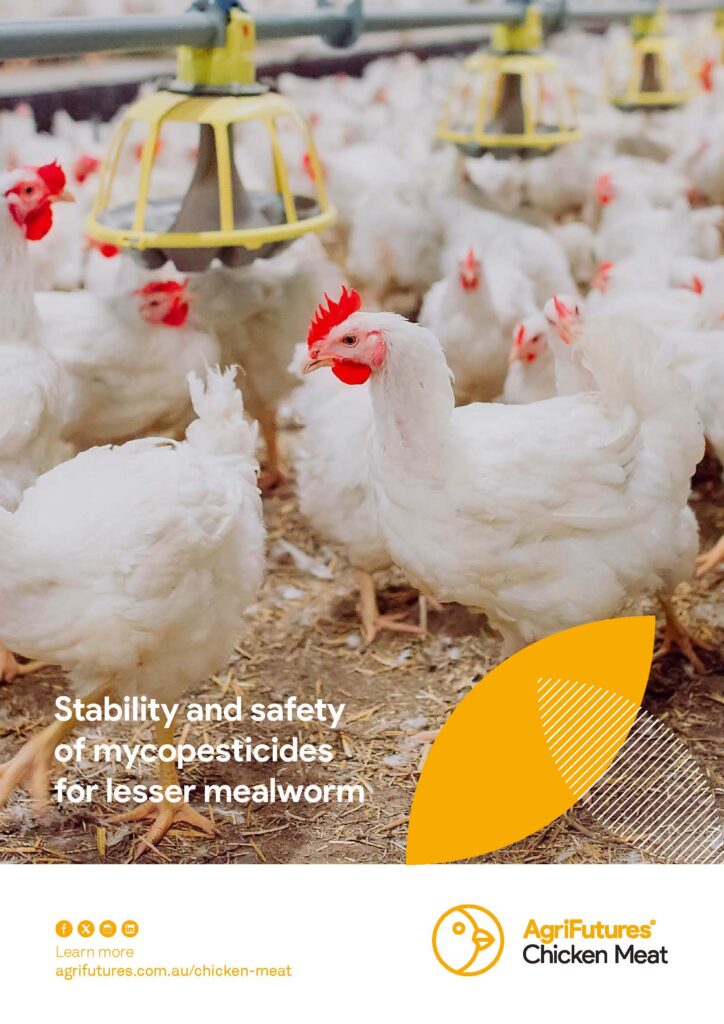Lesser mealworm control is hampered by insecticide resistance and limited control options — this project aimed to address data gaps in research conducted to develop mycopesticides (fungal biopesticides) based on the fungus Beauveria bassiana to control lesser mealworm in Australian commercial meat chicken sheds. Negotiations with animal health companies to produce mycopesticides highlighted the data gaps hindering commercial investment. Engagement with the Australian Pesticides and Veterinary Medicines Authority (APVMA) led to a better understanding of the regulations for mycopesticide registration, particularly for safety.
Analyses of B. bassiana growth determined it produced important secondary metabolites at low levels unlikely to affect chickens. Genetic analyses determined the B. bassiana strain used in the mycopesticides was unique and not an ingredient of currently registered products. Mycopesticide formulations withstood storage up to 14 months in hot and humid conditions. Improved production of B. bassiana for commercial upscaling reduced consumable costs by 80% and increased yield by 66%. Mycopesticides assessed in field trials at two commercial chicken meat farms performed better than the industry standard insecticides, reducing lesser mealworm populations by 87%. Adoption of mycopesticides will help mitigate insecticide resistance and reduce chemicals in the environment, increasing consumer confidence in chicken meat production.





